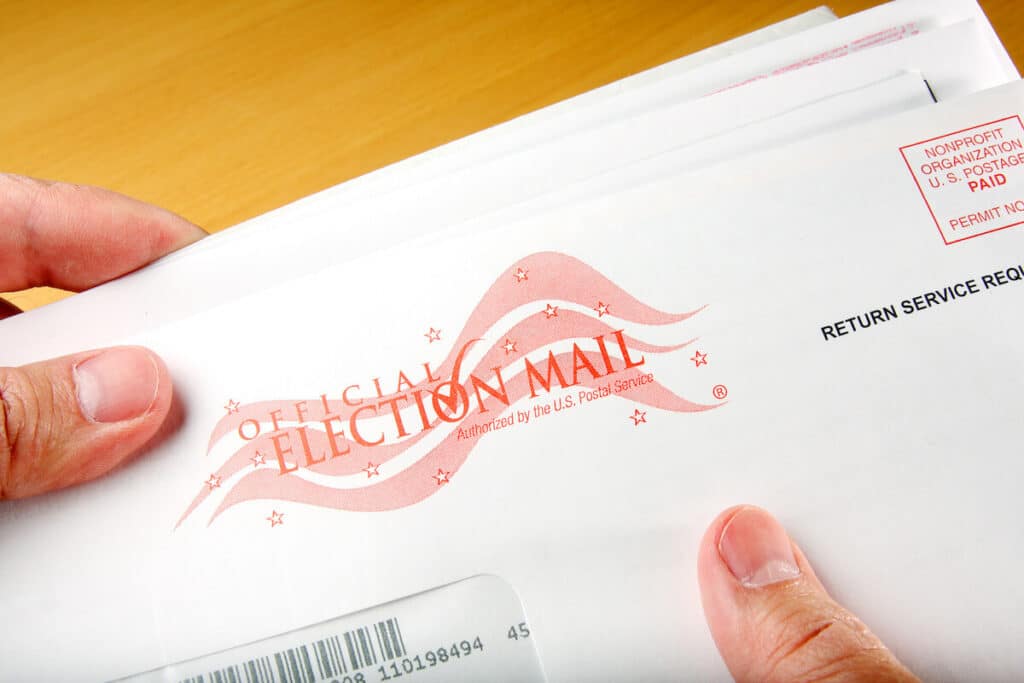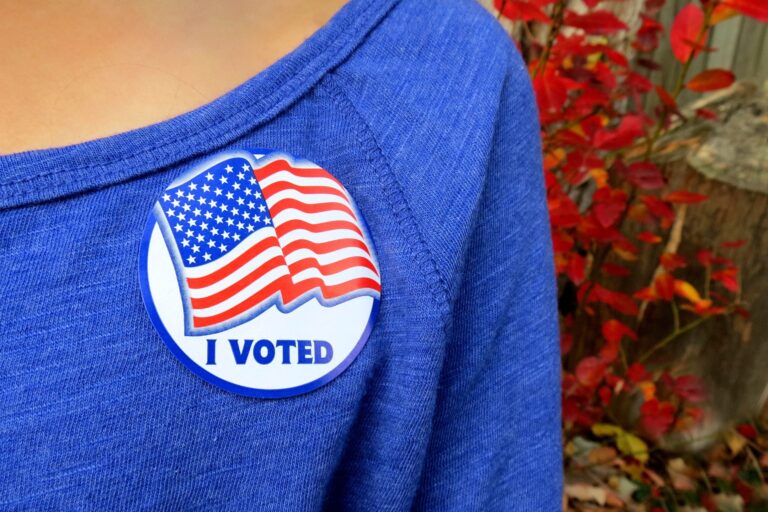Voting is perhaps the most important right one has as an American citizen. The right to vote in the U.S. is granted by constitutional amendments and federal and state laws. Together, these sources ensure that U.S. citizens can participate in the democratic process through voting.
Voting is one of the few ways to make your voice heard in a democracy. It’s a right not available to many citizens under dictatorships or authoritarian regimes. It is also a right that people have fought and even died for in years past. Even if you move abroad or travel overseas, you still have the right to vote as an American citizen.
Can immigrants vote in U.S. elections?
Upon completing the naturalization process, an immigrant gains full U.S. citizenship. This includes receiving the right to vote in the democratic process.
However, the right to vote is more complicated for individuals without U.S. citizenship. This includes Legal Permanent Residents (green card holders), visa holders, Temporary Protected Status recipients, Deferred Action for Childhood Arrivals recipients, and anyone other than a naturalized citizen.
In rare cases, undocumented residents can vote in elections, such as in San Francisco. In November 2016, the city passed Proposition N. Proposition N allows undocumented residents to vote in specific local elections. However, registering to vote may expose undocumented persons to immigration enforcement, as their names become public record.
The state of Maryland is also widely known for allowing non-citizens to vote in the statewide elections. A handful of cities in Vermont also allow non-citizens to vote in local elections.
In Boston, the City Council is currently exploring the possibility of giving voting rights to the immigrant population for local elections. This measure would allow Legal Permanent Residents (green card holders), visa holders, Temporary Protected Status recipients, and Deferred Action for Childhood Arrivals (DACA) recipients the chance to vote in local elections. This would only apply to local city elections, as it is illegal under state and federal law for non-naturalized citizens to participate in federal elections, including presidential elections.
With a few rare exceptions, non-citizens do not have the right to vote in federal midterm, primary, and general elections. The National Voter Registration Act of 1993 requires voters to present valid, government-issued identification and verify U.S. citizenship. However, some states and sanctuary cities issue driver’s licenses and state IDs to non-citizens so immigrants may register to vote in certain polling places.
The risks of illegally voting in elections
Voting illegally as a non-naturalized United States citizen can have dire consequences. If the courts determine that an undocumented person voted illegally, they could face steep fines. They may also face up to one year in jail for what amounts to a second-degree felony offense.
What’s even worse is if immigration authorities discover that you voted unlawfully, they may deny your immigration case. In certain cases, you may even face deportation. The Immigration and Nationality Act of 1952 imposes strict penalties. If an immigrant votes or registers to vote in the U.S., authorities may consider this a “false claim to citizenship.” The INA, amended in 1996, deems any votes cast by non-U.S. immigrants as “inadmissible” and a “deportable” offense.
If you are considering voting as a non-US citizen, check with the state and local authorities. This step is to ensure your eligibility to vote and will not face any consequences for registering to vote.

Voting abroad as a U.S. citizen
Congress enacted the Uniformed and Overseas Citizens Absentee Voting Act (UOCAVA) in 1986. The Federal Voting Assistance Program (FVAP) administers UOCAVA. They offer resources and support to ensure individuals can register to vote and request absentee ballots for federal elections. UOCAVA supports American citizens around the world who cannot vote in person:
- Uniformed Service members and merchant marines
- Their family members
- American citizens living outside of the U.S
If you are an American expat living abroad and are 18 years or older, you may vote via absentee ballot for federal office candidates in U.S. primary and general elections. You can seek support from the U.S. embassy, consulate, or consular services. The Department of State can also assist you. However, local and state elections have varying laws, so requirements may differ.
To qualify as an overseas voter, U.S. citizens must complete a Federal Post Card Application (FPCA). Voters can find the FPCA on the official website. Once officials confirm eligibility, the voter will receive an absentee ballot by mail. To vote in the U.S., individuals must:
- Be of voting age (18 years of age or older)
- Be a U.S. citizen at the time of voter registration
- Have no felony convictions
Election officials require voters to submit a new FPCA each year. The local election office must receive the FPCA at least 45 days before an election. If voters apply for an absentee ballot but do not receive it by Election Day, they can use the Federal Write-in Absentee Ballot, available online.
Learn more FAQs about voting abroad as a U.S. citizen here.
Voting is a huge part of democracy and every vote matters. Whether an immigrant or a U.S. citizen, everyone is endowed with certain inalienable rights, including the right to vote.
